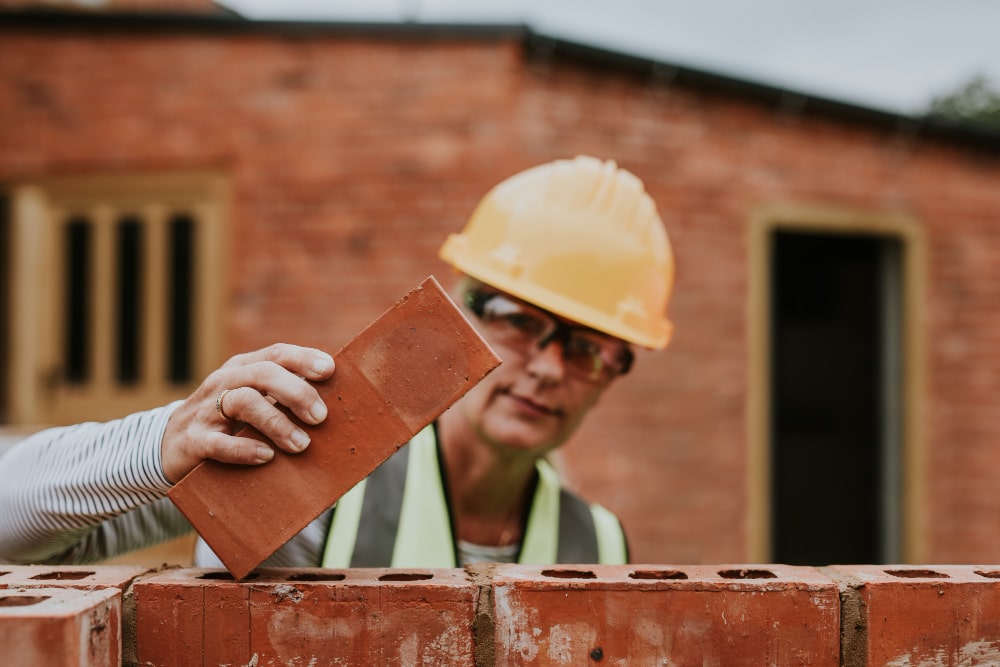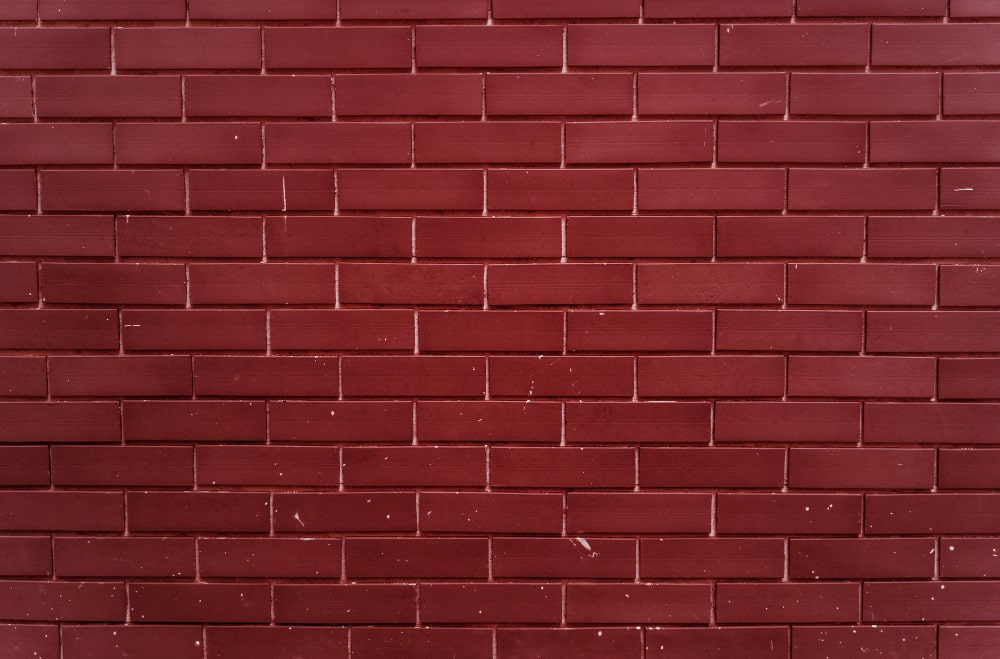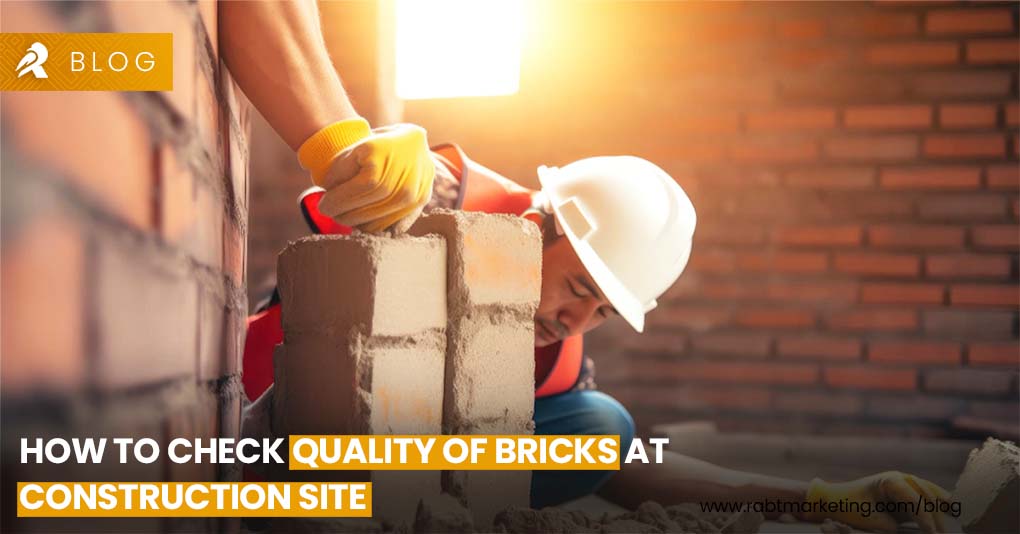Bricks have been an essential component of construction for centuries, providing the structural integrity and aesthetic appeal that modern buildings increasingly value. Their enduring significance in the construction industry is rooted in their durability, versatility, and availability. But while bricks continue to be a staple in building projects, ensuring their quality is paramount to guaranteeing the safety and long life of any structure.
Today, we are going to throw light on the importance of bricks in construction and outline essential tests to check the quality of bricks.
Why Bricks are Essential in Construction

1. Durability and Strength
Bricks are renowned for their strength and longevity. They can withstand various environmental conditions, including extreme weather, without losing their structural integrity. This makes them an ideal choice for buildings that need to stand the test of time.
2. Thermal Insulation
Bricks possess excellent thermal insulating properties, helping to maintain a building’s internal temperature. This can result in significant energy savings, reducing heating and cooling costs.
3. Fire Resistance
One of the critical advantages of bricks is their fire resistance. Brick structures can contain fires, preventing them from spreading quickly and offering inhabitants valuable time to evacuate safely.
4. Aesthetic Appeal
Bricks offer a classic and timeless aesthetic. They come in various colors, textures, and finishes, allowing for creative and attractive architectural designs.
5. Sustainability
Bricks are made from natural materials such as clay and shale, making them an environmentally friendly option. They are also recyclable, further reducing their environmental impact.
6. Load-Bearing Capabilities
Bricks are capable of bearing significant loads, making them ideal for both load-bearing and non-load-bearing walls. This versatility allows for flexibility in design and construction.
Read More:- Latest 2024 Bricks Rates in Pakistan
Read More:- Top 10 Types of Stones Used in Building Construction
Tests to Check the Quality of Bricks

Ensuring the quality of bricks is crucial to the safety and durability of any construction project. Here are some essential tests to check brick quality:
1. Compressive Strength Test
This test measures the brick’s resistance to crushing. High compressive strength is indicative of a high-quality brick.
Procedure:
- Collect five randomly selected bricks.
- Submerge them in water for 24 hours.
- Compress each brick individually until it breaks.
- Record the crushing force and calculate the average.
Standard: A good quality brick should have a minimum compressive strength of 3.5 N/mm².
2. Water Absorption Test
The water absorption test measures the amount of water a brick can absorb. Excessive absorption can weaken the brick.
Procedure:
- Weigh a dry brick.
- Submerge the brick in water for 24 hours.
- Remove the brick and wipe off any surface water.
- Weigh the brick again and calculate the percentage of water absorbed.
Standard: A good quality brick should not absorb more than 20% of its dry weight.
3. Efflorescence Test
Efflorescence refers to the white, powdery deposits that appear on the surface of bricks due to soluble salts. This test measures the presence of these salts.
Procedure:
- Place a brick in a dish with distilled water, ensuring the brick is partially submerged.
- Allow the water to evaporate over 7 days.
- Inspect the brick for white deposits.
Standard: A good quality brick should show no more than 10% of its surface covered with efflorescence.
4. Hardness Test
A simple scratch test is used to assess the hardness of a brick.
Procedure:
- Scratch the brick surface with a steel tool or nail.
- Observe the surface for any visible scratches.
Standard: A good quality brick should show no visible marks or scratches.
5. Shape and Size Test
Uniformity in shape and size is crucial for the proper alignment and stability of brickwork.
Procedure:
- Measure the dimensions of a sample of bricks.
- Compare the dimensions to standard sizes.
Standard: A good quality brick should have uniform dimensions within permissible tolerances.
6. Soundness Test
This test checks the brick’s overall structural integrity.
Procedure:
- Strike two bricks together.
- Listen to the sound produced.
Standard: A good quality brick should produce a clear ringing sound, indicating a dense and well-fired brick.
7. Impact Test
This test assesses the toughness of a brick.
Procedure:
- Drop a brick from a height of 1 meter onto a hard surface.
- Observe the brick for any damage or cracks.
Standard: A good quality brick should not break apart.
Final Words
Bricks are a cornerstone of the construction industry, valued for their durability, thermal insulation, fire resistance, aesthetic appeal, sustainability, and load-bearing capabilities. However, the quality of bricks must be rigorously tested to ensure they meet the required standards for construction. By conducting compressive strength, water absorption, efflorescence, hardness, shape and size, soundness, and impact tests, builders can guarantee that their brickwork will be safe, strong, and long-lasting.
If you found this article helpful and want to stay updated with more insights into construction materials and techniques.
Stay connected with RABT Marketing.

